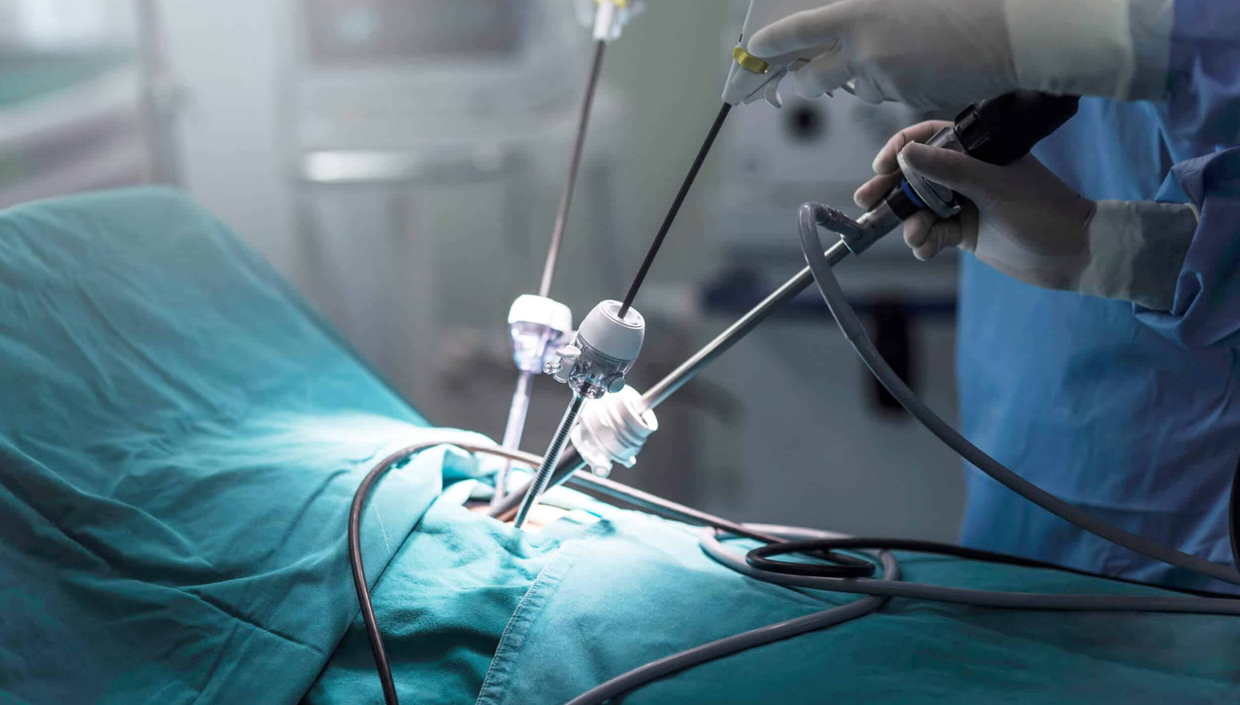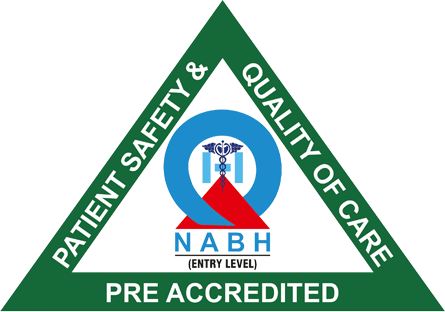Laparoscopic Surgery

A surgical technique known as minimally invasive surgery (MIS) or keyhole surgery, where short, narrow tubes are inserted into the abdomen through small Incisions. Laparoscopic surgery is used in the abdomen and pelvis areas. Narrow tubes like trochars are used by Surgeons to manipulate, cut, and sew tissue.
This tool has a video camera at the end to see what's happening inside you without the need to cut a more significant part of the area by the surgeon. Such instruments help to cut the body part less. Unlike traditional open surgeries, which require large instruments, laparoscopic surgery uses small incisions to treat patients.
Due to its less invasive nature, it's safer than conventional Surgeries. In the traditional method, the surgeon had to cut about 6 to 12 inches of the body part to do open surgery in the abdomen or pelvis area. The larger opening gave enough space for the doctor to see what was happening inside, but it required more recovery time, and the healing process was complicated compared to the new technology used. Nowadays, in laparoscopic surgery, only a few cuts are done, and the wounds heal much faster.
What is Laparoscopic Surgery used for?
Is Laparoscopic Surgery Painful?
Advantages of Laparoscopic Surgery
Difference Between Laparoscopy and Laparoscopic surgery
How to prepare for Laparoscopic Surgery
How long does laparoscopic surgery take to heal?
Who shouldn’t have Laparoscopic surgery?
Best Laparoscopic Surgeon in Dehradun
What is Laparoscopic Surgery used for?
Laparoscopic Surgery is used for the following things:
- Appendix Removal (Appendectomy)
- Testicle correction surgery ( Orchiopexy)
- Hernia repair surgery
- Gastric Bypass Surgery
- Gallbladder removal of gallstones
- Urethral and Vaginal Reconstruction Surgery
- Rectal prolapse repair
- Bladder removal
- Cancer
- Kidney removal
- Small tumor removal
- Spleen removal
Is Laparoscopic Surgery Painful?
Laparoscopic surgery has an advantage over traditional open surgery, i.e., less pain and fewer scars. Laparoscopic Surgery is performed under general anesthesia, so you will be unconscious and won't feel the pain.
Advantages of Laparoscopic Surgery
- Minor cuts and Fast healing: Small cuts reduce scarring and speed up healing.
- Less pain: As there is no significant body cut pain will be much less.
- Small Scars: The scars will be small only due to minor cuts.
- Low risk of infection: Lower risk of infection as the cut will not be significant.
- Less expensive: As hospital stays will be less, it will not be costly.
- Recovery time will be faster.
- Low medications: Due to fewer cuts, many medicines will not be taken.
- Significantly less blood loss: There will be less blood loss as small incisions will be there.
Laparoscopic Procedure
Before the surgery, you might get asked to take some urine or blood tests. After that,t an IV will be inserted into your vein, and breathing down the tube into your throat for air. The surgeon will then cut the minor cuts in the abdomen or pelvic area, and for the camera and tools, the tubes will be placed. Carbon dioxide will be pumped inside to separate the abdomen wall and organs. Then, the doctor can put the camera and tools inside and be guided by the images on a video monitor.
Difference Between Laparoscopy and Laparoscopic surgery
Laparoscopy is a diagnostic procedure, while Laparoscopic Surgery is a surgical procedure, meaning that in Laparoscopy, a thin, flexible tube is inserted inside the abdomen to examine internal organs. It is mainly used to diagnose medical conditions like abdominal pain, endometriosis, etc. At the same time, Laparoscopic surgery is used to do surgical procedures. It involves examining and operating the organs while inserting instruments through minor invasions. Examples of laparoscopic surgery would be hernia repair, appendix removal, etc.
How to prepare for Laparoscopic Surgery
- Consult the doctor and discuss your medical history.
- Discuss the risks, benefits, and precautions while undergoing Laparoscopic surgery.
- Avoid heavy meals before the day of the surgery.
- Wear loose, comfortable clothes on the day of surgery.
- Remove jewelry; consult the surgeon for additional information regarding the surgery.
How long does laparoscopic surgery take to heal?
Most patients have two or four wound sites, which usually take one to two weeks to recover fully. However, one can return to their typical lifecycle in one to two days and do lightweight activities in just 3-4 days.
When to call a Doctor?
When you have the following symptoms, it is better to reach out to the doctor:
- When there is redness or swelling around incisions.
- If there is a problem while urinating.
- If there is abnormal discharge or bleeding.
- When you are feeling fever or chills.
- If you are vomiting a lot.
Who shouldn’t have Laparoscopic surgery?
You should not opt for Laparoscopic Surgery if you have the following problems:
- If you have certain cardiopulmonary conditions.
- If you have an infection.
- If you are bleeding.
- If you have lots of body mass in the surgical area.
- If you have severe obesity.
- If you are in your late-stage pregnancy.
- If you are poorly tolerant of anesthesia.
Best Laparoscopic Surgeon in Dehradun
Dr. U.S Baluni (General and Laparoscopic Surgeon)
Looking for the best laparoscopic surgeon in Dehradun? Dr. Uday Shankar Baluni at Baluni Hospital is a trusted expert in minimally invasive surgery, offering advanced procedures like laparoscopic cholecystectomy, hernia repair, and bariatric surgery. With years of experience and a patient-first approach, he ensures precision, faster recovery, and minimal discomfort. Whether it's routine or complex surgery, Dr. Uday Shankar Baluni’s expertise guarantees the best care. Choose Baluni Hospital for world-class treatment and compassionate care.
Book your consultation today and experience expert surgical care!
Conclusion: Laparoscopic Surgery
With continuous advancement in science and technology Laparoscopic Surgery is expanding, making the surgery less invasive and precise. Most surgeons now opt for these surgeries over traditional open surgeries as they are less painful and have faster healing time. Despite its minor invasive nature, it may not be suitable for everyone and may require an open surgical approach for a few patients. So, whenever opting for such procedures, do not forget to consult a professional doctor who will examine the insides better and guide you properly. Laparoscopic Surgery is here to shape the future of healthcare worldwide. Choose Baluni Hospital for your trust & care.







